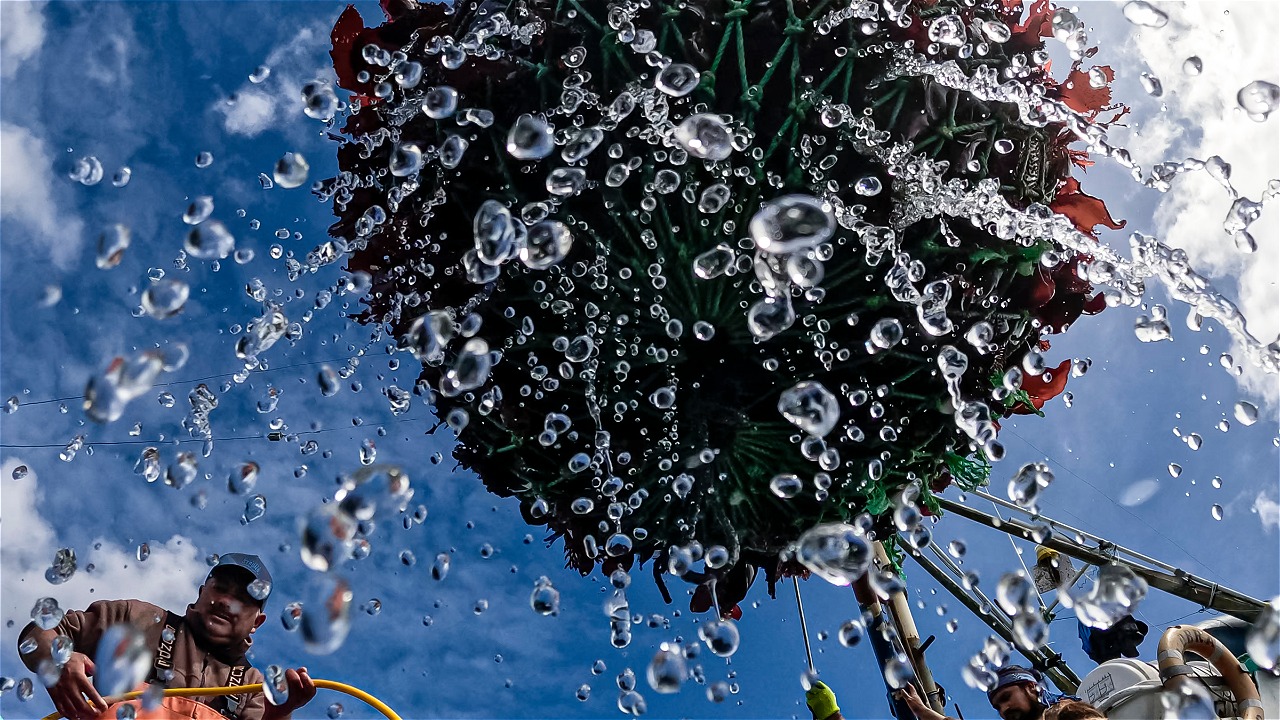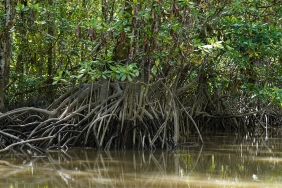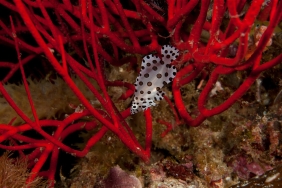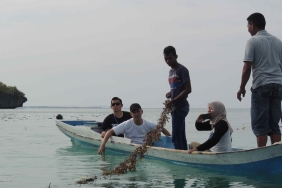ENDING OVERFISHING
Sometime ago, WWF-Indonesia had another opportunity to visit Universitas Indonesia on the occasion of movie screening activity and discussion held by the International Relations Students Association of UI. This activity is a part of the annual ""Global Festival"" event, with this year theme ""The Festivities of Asia Pacific: A Rising Region in a Changing World.” WWF-Indonesia was invited to participate in socializing marine conservation issues.
There were two movies presented during this activity, a short animated movie produced by the European Union entitled ""Ending Overfishing"" and a documentary depicting the 'bout' to rescue fish resources that occur in the waters of Asia Pacific, particularly in the area of the Coral Triangle. Both movies aim to give an overview of overfishing and illegal fishing that generally stems from the utilization of fish resources. The movies lasted for approximately one hour then followed by a discussion that presented Margaret Meutia of WWF-Indonesia Marine Program and Avyanthi Azis, MS, one of the lecturer staffs in the Department of HI UI that focuses on teaching about conventional issues in the study of International Relations, including environmental issues.
Film ""Ending Overfishing""
The discussion session attended by students and lecturers of International Relations Department was interesting because most of the participants have just learned about the issues of global fisheries. As presented by Avyanthi, ""Watching the show was like a ""wake up call"". Furthermore, as reviewed from the perspective of International Relations, Avyanthi added that fisheries issues is closely linked with other non conventional issues in the realm of international relations, namely human trafficking. ""Most smuggled men in Southeast Asia are being trafficked to become fishermen as we saw in the movie.""
The message of both movies seems to be well comprehended by the participants. Some responses highlight poverty issues as one of the causes of overfishing and illegal fishing, lack of respect for fishermen who implement sustainable fishing practices, to the problem of human population growth that is not balanced with the availability of marine resources.
During the discussion, the representative of WWF-Indonesia informed about Seafood Guide, a guide to consume seafood, as one of the solutions to overcome the problem of overfishing. Furthermore, Margaret also describes about the collaboration undertaken by WWF-Indonesia with the government and other partners to combat overfishing, including the Seafood Savers program involving corporate partners. ""WWF-Indonesia runs the program from the upstream to downstream to overcome this marine resources problem. Advocacy on the side of producers and consumers are equally important and should be done in parallel to provide the desired results: the balance utilization of marine resources and sustainability assurance for the future, ""explained Margaret toward the end of the discussion that afternoon.
In her comment, Avyanthi cited a term expressed by an anthropologist named Michael Taussig: ""the displacement of everyday lives by commodities"" to describe human condition that is trapped in the consumption of commodities without knowing the origin of the commodities, where they are obtained and how to get them. The outreach activities are expected to 'awaken' and make aware the participants to get out of the condition.
Global Festival 2012 organized by International Relations Students Association of Universitas Indonesia was held on Tuesday, November 13, 2012.
Contact:
Margareth Meutia, Senior Corporate Campaigner Marine, mmeutia@wwf.or.id





